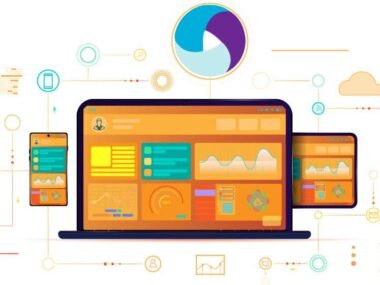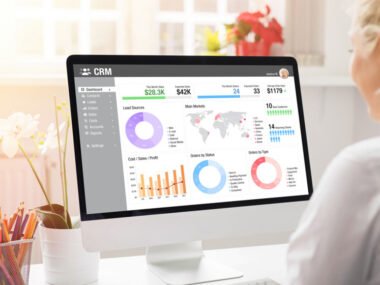In the digital marketplace of today, the balance between e-commerce and social media can be the way that drives engagement and growth. On top of this is where Shopify Stores are supporting tools and strategies for easy integration of an online store with popular social media platforms. By doing so, businesses expand their circle increase awareness of their brand and drive sales.
Social media platforms like Instagram, Facebook, TikTok are offering unique opportunities for Shopify store owners to show their products, communicate with customers, run hyper-targeted marketing campaigns for growth and visibility. For businesses seeking expert assistance, collaborating with Shopify partners UK ensures a smooth and effective integration process. In this article, we’ll explore how Shopify stores integrate with social media to fuel business growth.
Streamlined Product Listings and Shopping Features
Shopify allows merchants to have product catalogues directly linked with social media platforms, including Instagram and Facebook. Therefore, businesses can easily develop shoppable posts through which customers can buy specific items without leaving the application. Social commerce features enable frictionless buying, making customers’ shopping experiences completely smooth.
Shopify further supports cross-platform inventory synchronisation to prevent inconsistency in the stock availability report. This integration helps firms attract more customers and increase sales by permitting immediate product visibility and easy purchase while streamlining user convenience.
Targeted Advertising Campaigns
Social media platforms provide superior advertisement tools, and Shopify simplifies the process of launching targeted campaigns. With Shopify, integration with Facebook Ads Manager and TikTok Ads allows business owners to set up different ads for customers based on purchase histories or browsing behaviours.
Targeted ads help businesses reach the right audience for their respective relevant products, maximising return on ad spend. With Shopify’s analytics, advertising can easily be monitored for performance and optimised in real time. This integration of data-driven insights and behaviours drives engagement and ramps up sales conversions very effectively.
Effortless Social Media Management
Shopify integrates well with tools such as Hootsuite and Buffer, which enable store owners to manage their real-time media presence very efficiently. These enable businesses to schedule posts, track engagement, and analyse performance across multiple platforms from a single dashboard. It also saves time, while the social media management maintains constant posting times.
This helps to create a significant online presence and keep followers interested. Shopify’s social media integration also gives insights into which posts are driving the most traffic into the store, hence helping businesses to hone their content strategies for the best outcome.
Influencer Marketing and Partnerships
Shopify’s support for influencer collaborations incorporates very effective approaches to reaching new audiences. Owners of stores can reach out to influencers on Instagram, TikTok or any other platforms where they can hold content engagements that sell their products. Shopify tracks all referrals and sales generated through influencers, making it possible to measure campaign effectiveness.
Influencer marketing is not limited to brand awareness; it creates trust with potential customers. Such integrations can tap into and a Shopify merchant may create an all-rounded marketing campaign that can ensure growth and establish long-term customers.
Live Customer Interaction
Social media allows live interaction with customers. Shopify integration is there as well, to help that. Live shopping events, Instagram Stories and Facebook Messenger may immediately connect your business to the target audience. Integrations with Shopify live chat and chatbots also strengthen customer service by providing quick, real-time answers to questions that are asked repeatedly.
Interacting with customers through polls, Q & A’s and user-generated content also helps to interact with the customer to influence repeated purchasing habits. An interactive approach strengthens brand loyalty while enhancing customer retention because it is critical to sustainable growth.
Data-Driven Social Selling
Shopify provides a robust analytics feature that enables merchants to measure the performance of their social media campaigns. Businesses will quickly find out what works and what doesn’t through click-through rates, conversion rates and average order value. Shopify even supports Google Analytics and Facebook Pixel, meaning merchants can gain deeper insight into customer behaviour.
All this insight allows merchants to refine their social selling strategy and adjust their campaigns to unearth new growth opportunities. By following a constant performance analysis, the owner of Shopify stores will be able to come up with proper suggestions that can bring maximum sales with social media.
Conclusion
Shopify stores integrate perfectly well with social media sites. This enables the companies to grow an online life, reach customers and make more sales. All the way from creating shoppable posts and running targeted ads to collaborating with influencers and seeing data analyses, Shopify offers an array of tools that a business can use to maximise the impact of social media. Businesses can see this integration Fromely, thus unlocking the full power of their e-commerce strategy. Properly empowered by Shopify’s power and the social media arena, a business becomes capable of building a loyal consumer base, driving sustainable growth and thriving in a highly competitive environment.










